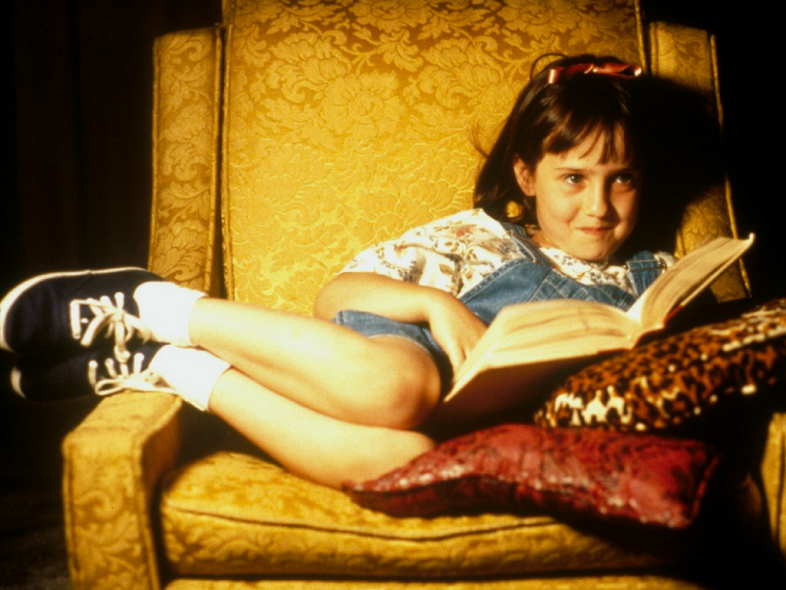If Mara Wilson thinks it was hard growing up as a white child actor, she should try being a mixed race one
I got a call from my agency saying that they wanted me to go up for The Lion King – one of the very few musicals actively seeking BME actors. But a couple of days before the audition, there was some bad news: 'We think you might be a bit too light for the part – could you go on a sunbed?'


This weekend, Mara Wilson – the former child actor who appeared as Matilda in Matilda and one of the main child characters in Mrs Doubtfire – opened a discussion on child acting, in particular how it can affect a child’s mentality and identity as they grow up in the public eye.
As a society, we are very keen to track the progression of child stars who remain famous, or to investigate why they left acting after being cast in major roles at very young ages. You could even say that we consistently show an interest in the mental health of these children. Nevertheless, on the whole, the attention paid and the interest surrounding them often spirals into the voyeuristic, invasive and, at its worst, sadistic.
Wilson’s honest, articulate and personal description of the difficulties the industry poses for children was a world away from contributing to that style of feeding frenzy. She discusses the difficulties that can occur for children when they act, and how public attention can affect a child’s self-esteem either positively or negatively. And you don’t have to be internationally famous to be subject to the stresses, pressures, and damages that can be caused by engaging in this industry as a child: I know from personal experience.
When I was young, I was absolutely desperate to be an actress. My mother and father were adamant that this was an ambition I should wait until adulthood to fulfil. Stage school was an absolute no-no in their books, for reasons that were totally beyond me and other Noel Streatfeild enthusiasts. After years of begging, I eventually persuaded them to let me audition for an agency when I was ten, which I was accepted into. This particular agency mainly sent children to audition for West End musicals, and while there were a number of casting calls for CBBC shows and the like, and the occasional film, no one was at much risk of real, life-altering fame.
But that didn’t mean that the issues that Wilson talks about weren’t present. Puberty was, to me, a ticking time bomb – the evil, inevitable process that would, in my view, render me redundant. But until puberty arrived, there were other, more pressing, worries at play in my juvenile mind.
I am mixed race: half-white, half-Indian. Until I started acting, I didn’t think much about this. But as I lined up at auditions, over and over again, with the same bunch of light-haired, fair-skinned girls, a trend began to emerge.
I could see the eyes of the casting teams glaze over as I began to trill my version of whatever musical song was required for that show. I was written off as soon as I came into the room – after all, nobody wants an Asian Von Trapp.
From a logical perspective this did make sense to me. It’s not that feasible that Cosette would turn from a little brown child into a golden-haired adult. But the constant rejection transformed how I felt about being non-white.
I would hide this distress from my parents, sure that if they got wind of it they would immediately stop me from going to auditions. At the age of 11, I began to have dreams that all my hair would fall out and my skin would drop off my body, only to grow back in a fairer hue. And they weren’t nightmares – I would wake disappointed that it hadn’t happened in real life.
But then I got a call from the agency saying that they wanted me to go up for The Lion King – one of the very few musicals actively seeking BME actors. I was incredibly excited and immediately started practicing the songs. But when I next went in to the agency a couple of days before the audition, there was some bad news: “We actually think you might be a bit too light for the part, so maybe go on a sunbed for a while.” My mother ushered me away with cries of “Over my dead body”, and informed me why, for so many reasons, this suggestion was not OK.
“Mixed race kids always get cast in adverts!” the agency reassured me. But then they saw my teeth – crooked and unsettled. Apparently only mixed raced kids with decent teeth get cast in adverts.
But I eventually did get my first part – the youngest daughter in Fiddler on the Roof on the West End. The relief and excitement I felt was unequalled by anything else I’d experienced in my 11 short years. Finally, I could just get on with acting, and people would see beyond what I looked like.
I turned up on my first day of rehearsal and the assistant director said, “Ah, I remember you. You’re Biba, the little dark girl.”

Join our commenting forum
Join thought-provoking conversations, follow other Independent readers and see their replies